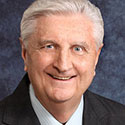Is brainwashing going to make an dishonorable comeback?
By MercatorNet – Navigating Modern Complexities

A number of bioethicists advocate ‘moral enhancement’ — by tinkering with people’s brains or by giving them pharmaceuticals.
Imagine this scenario: the US Army captures a fanatical soldier of the Islamic State who has been responsible for the deaths of several Americans. What comes next? Execute him immediately? Illegal. Imprison him until he is no longer dangerous? He could be there for the rest of his life. Disarm him and release him? Too dangerous – he will kill again.
A bioethicist from the University of Massachusetts Lowell, Blake Hereth, suggests another option in the journal Neuroethics: forced moral neuroenhancement. Hereth argues that this is entirely legitimate for “for prisoners of war (POWs) fighting unjustly”.
Whether it is even possible to force people to act virtuously by tinkering with their brains with implants or chemicals is highly speculative. But let’s assume for the moment that it is. Hereth contends that it could be morally obligatory because it would both keep the terrorist from being killed and would keep him from killing others.
Of course, this appears to ignore a key point in the Geneva Conventions:
… no prisoner of war may be subjected to physical mutilation or to medical or scientific experiments of any kind which are not justified by the medical, dental, or hospital treatment of the prisoner concerned and carried out in his interest.
But Hereth responds that moral enhancement is in his interest: he will become a better human being. He will become a “just combatant” or a “harmless civilian”. “The unfortunate fact,” he writes, “is that states will pursue wars irrespective of their inability to know whether those wars are just. When they do that, morally improving enemy combatants is less bad than killing them.”
What if the other side, the bad guys, attempt to use moral enhancement to “turn” soldiers on our side, the good guys. Hereth has a solution to that – an “Advance Directive Implant” which would kill the good guy when his superiors discovered that he has been captured.
For Hereth, the use of moral enhancement in war is a test case. If it works, the techniques and the theory could be used in other situations.
This proposal raises a host of ethical questions.
An obvious one is – who determines whether a cause is just or unjust? ISIS believed that their cause was so obviously just that it permitted them to violate human rights.
Back in 2015 terrorists killed 130 people in the Bataclan theatre in Paris. They were high on Captagon, a black-market amphetamine. Witnesses said that the killers were almost zombie-like. “I saw a man shoot,” one witness told French TV. “I saw a man who was peaceful, composed, with a face that was almost serene, contemplative, advance towards the bar. He sprayed the terrace [with bullets] as anyone else would spray their lawn with a garden hose.” That was moral bioenhancement, of sorts, even if bioethicists would disavow it.
Moral enhancement is a hot topic in contemporary bioethics. It has been advocated for psychopaths, for unruly teenagers, for sex offenders, for people who don’t believe in climate change, etc. Some bioethicists believe that it should be compulsory in the light of the destructive power of modern technology. Freedom is just too risky. As American bioethicist Parker Crutchfield argued a couple of years ago:
Where it used to require an extraordinarily coordinated effort to cause ultimate harm, now, or in the near future, it only takes one person. Thus, moral bioenhancement ought to be compulsory for everyone.
During the Cold War era, they had another name for moral enhancement – brainwashing. The horror of brainwashing, as people imagined it in the 1950s, was that it destroyed a person’s freedom, the characteristic which most fully defines what a human being is. That fear lingers on in the public’s revulsion at what the LGBT lobby calls “gay conversion therapy”. But there is a sound reason for that fear: people are made to be free.
If moral enhancement were ever taken seriously outside the Ivory Tower, it would signal a complete break with two thousand years of moral culture. In the Judeao-Christian tradition, God created Adam and Eve as the only morally free agents on earth. A risk was involved – that they would make bad, morally culpable choices. But a human being without freedom is less than human.
Unlike God, bioethicists in favour of moral enhancement are not prepared to take a bet on human dignity. Better a world without freedom than a world without safety.

This article is courtesy of DrRichSwier.com, an online community of citizen journalists, academics, subject matter experts, and activists to express the principles of limited government and personal liberty to the public, to policy makers, and to political activists. Please visit DrRichSwier.com for more great content.

